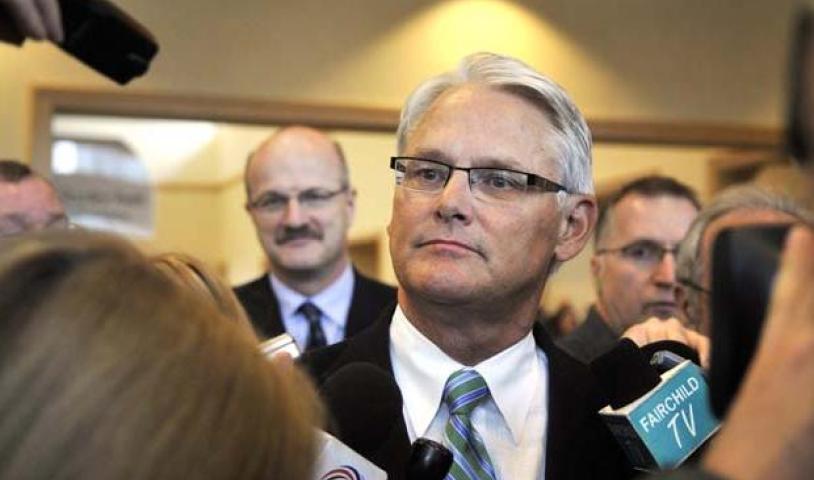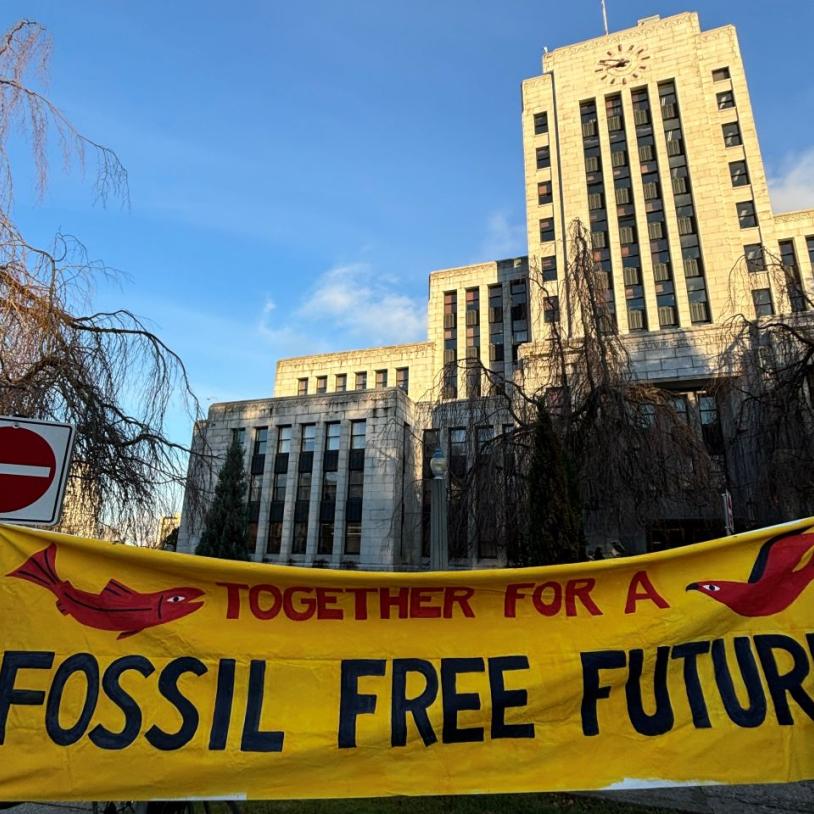B.C.'s green reputation fading
Wednesday, September 2, 2009
The provincial Environment Ministry has suffered deep cuts in Tuesday's budget and a levy that raised $25-million annually for clean energy has been repealed, raising questions about the direction of Canada's greenest province.
“This is the budget that left the environment behind,” Gwen Barlee, policy co-ordinator for the Wilderness Committee, said in reacting to the British Columbia budget.
She noted that while Premier Gordon Campbell often talks about the importance of protecting the environment, his government has slashed spending to the Environment Ministry, with the budget falling from $225-million in 2008-09, to $193-million, $189-million and $184-million in subsequent years.
Ms. Barlee said at the same time the government has continued to provide tax incentives to “dirty industries” such as oil and gas and mining.
The province has come in for wide praise from environmentalists in the past because of its carbon tax, and in August, on Earth Day, B.C. was declared the greenest province in Canada in a national report published by the quarterly magazine Corporate Knights.
A brown tinge seemed to be appearing Tuesday, however.
“We've all taken some pain in this budget, but I'm a bit shocked by the cuts,” said Jeffrey Young, a biologist with the David Suzuki Foundation.
Matt Horne, Director of the B.C. Energy Solutions Program for The Pembina Institute, said he was disappointed in the failure of the government to do more to promote a shift to a greener economy.
“Instead of enhancing efforts to encourage greener choices and investments, the budget sends mixed signals on the need to reduce greenhouse-gas emissions and maintains a reliance on unpredictable fossil-fuel resource revenues,” he said.
He said, for example, that offering Harmonized Sales Tax exemptions for residential energy use “dampens the signal for families to make their homes more energy efficient.”
He was also critical of the government for putting in doubt the future of the Innovative Clean Energy levy, a sales tax on purchases of electricity, natural gas, fuel oil and propane that raises about $25-million annually.
The ICE levy, which is used to fund clean energy initiatives, will be repealed with the implementation of the HST. The government has promised to continue the program, but did not set a funding target.
A battery levy, which has been raising about $5-million annually for the Sustainable Environment Fund, is also being repealed under the HST.
“There's no indication of what the budget [for those programs] might be,” said Mr. Horne.
“I don't think anyone was realistically expecting big spending [on environmental programs] but there are ways to send stronger signals than this,” he said.
George Heyman, executive director of Sierra Club B.C., said the budget signals a dramatic change in direction to the government's environmental agenda.
“Last year, the government trumpeted its intention to fight climate change and protect B.C.'s environment,” said Mr. Heyman.
“This year, while British Columbians search for climate-friendly transportation alternatives and scrape for dollars to make their homes more energy efficient, the budget slaps a tax on bicycles, home renovations and energy-efficient appliances that reduce household greenhouse-gas emissions.”





